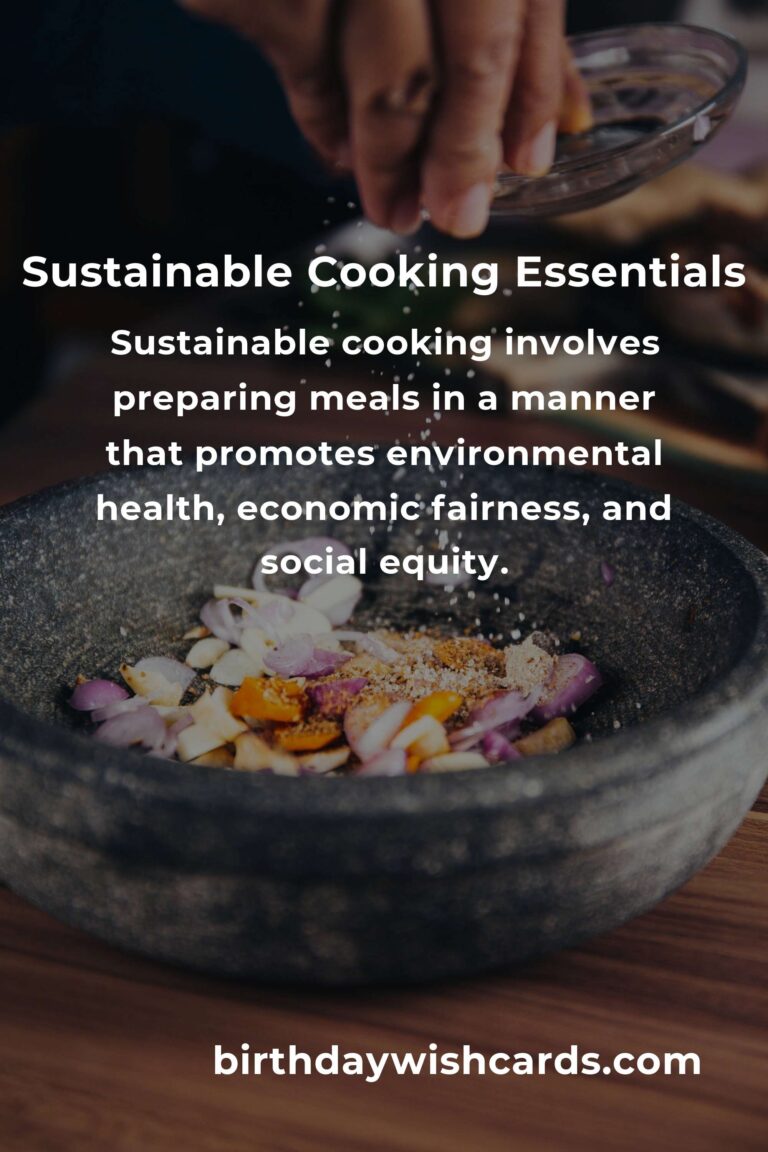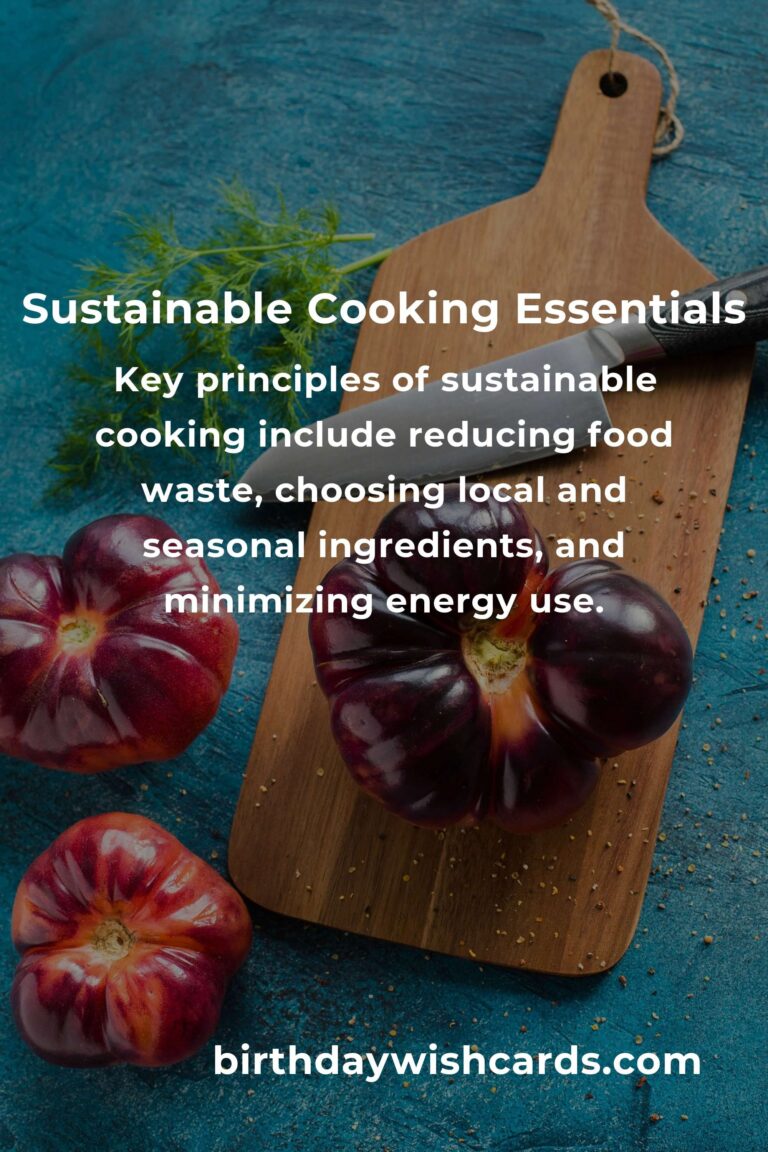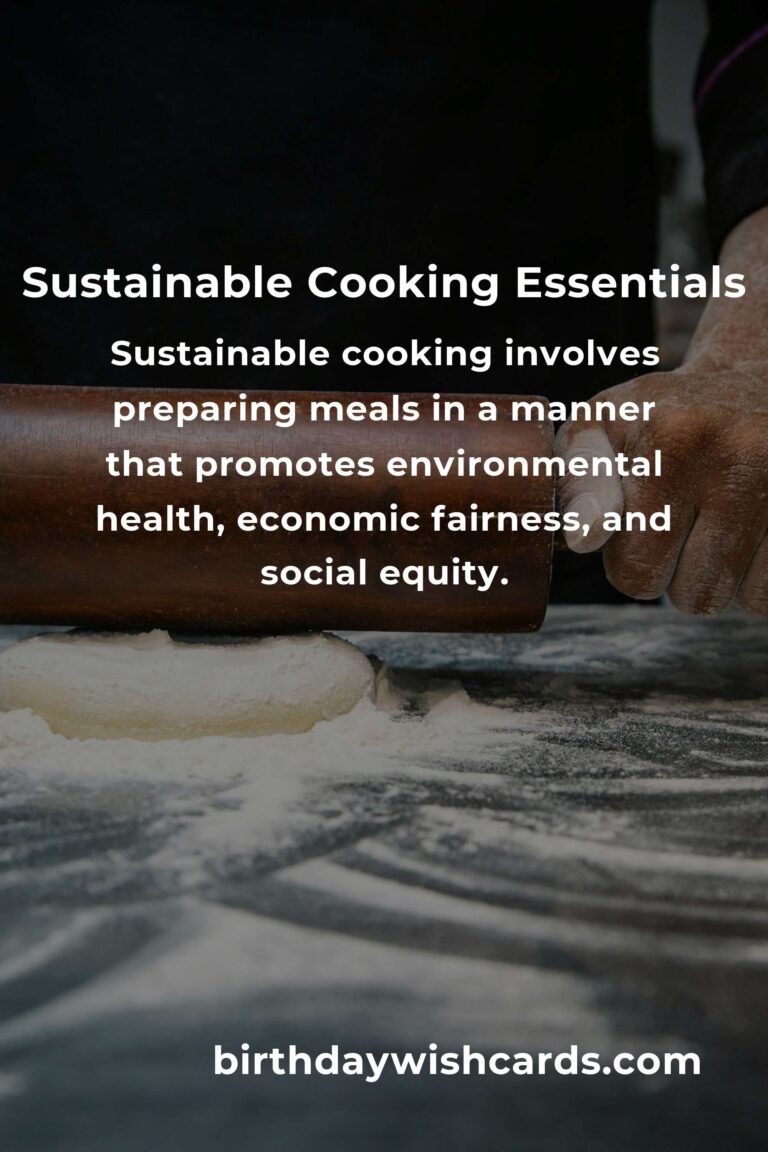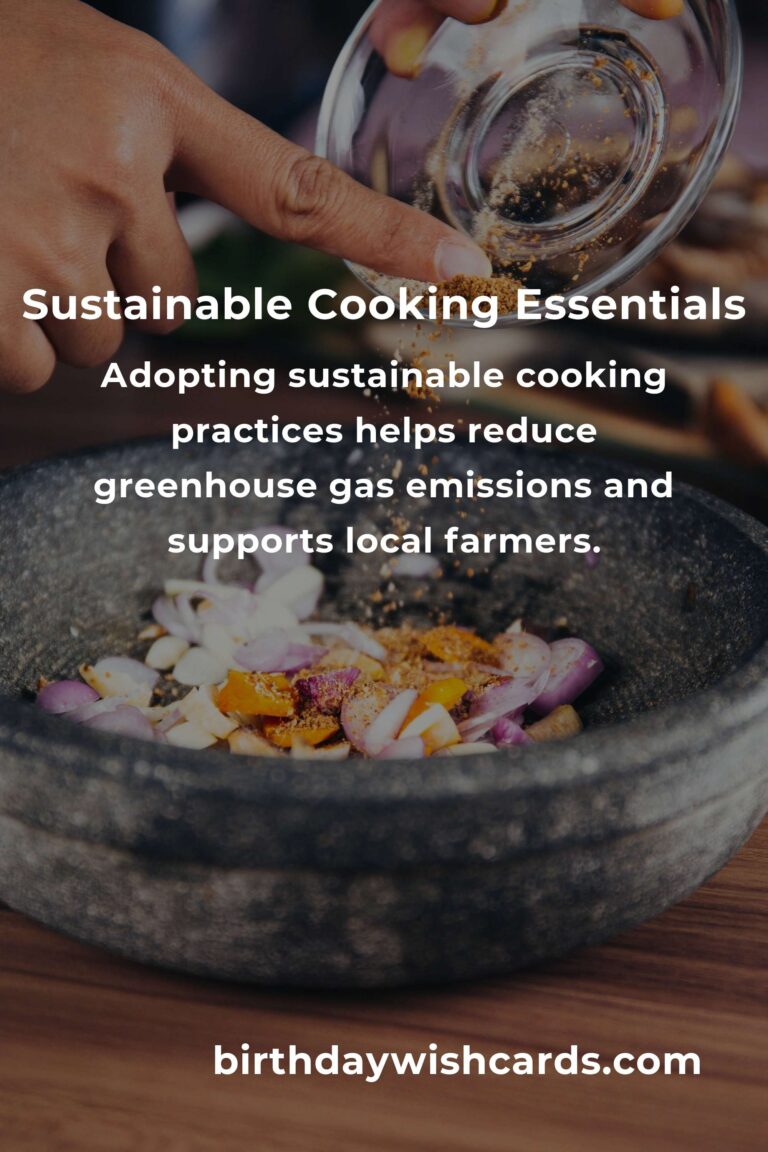
In today’s world, the importance of sustainable cooking cannot be overstated. With increasing awareness of environmental issues, more people are turning to sustainable cooking as a way to reduce their carbon footprint and contribute to a healthier planet. This guide will provide you with the basics of sustainable cooking and help you navigate through the essentials to make eco-friendly choices in your daily culinary practices.
Understanding Sustainable Cooking
Sustainable cooking involves preparing meals in a manner that promotes environmental health, economic fairness, and social equity. It is about making conscious choices that minimize waste, conserve energy, and support local ecosystems.
Benefits of Sustainable Cooking
Adopting sustainable cooking practices has numerous benefits. Not only does it help reduce greenhouse gas emissions, but it also supports local farmers and economies. Additionally, it can lead to healthier eating habits by encouraging the consumption of fresh, local, and seasonal produce.
Key Principles of Sustainable Cooking
There are several key principles to keep in mind when considering sustainable cooking:
1. Reduce Food Waste
One of the simplest ways to practice sustainability in the kitchen is by reducing food waste. Plan your meals carefully, store food properly, and use leftovers creatively.
2. Choose Local and Seasonal Ingredients
Local and seasonal ingredients not only taste better but also have a smaller carbon footprint since they require less transportation and storage.
3. Minimize Energy Use
Use energy-efficient appliances and cooking methods. For example, using a pressure cooker can save time and energy compared to conventional cooking methods.
4. Opt for Plant-Based Meals
Incorporating more plant-based meals into your diet can significantly reduce your environmental impact, as plant-based foods generally require fewer resources to produce than animal-based foods.
Practical Tips for Sustainable Cooking
Here are some practical tips to help you get started with sustainable cooking:
1. Meal Planning
Plan your meals in advance to avoid impulse purchases and ensure you use all the ingredients you buy.
2. Sustainable Shopping
Bring reusable bags, choose products with minimal packaging, and support brands committed to sustainability.
3. Energy-Efficient Cooking
Use lids on pots to reduce cooking time, and match pot size to burner size for efficient heating.
4. Composting
Start a compost bin to recycle food scraps and reduce landfill waste.
Conclusion
Embracing sustainable cooking is a step towards a more sustainable lifestyle. By making small changes in the kitchen, you can make a significant impact on the environment. Remember, every little effort counts!
Start today by implementing these sustainable cooking basics and become a part of the global movement towards a healthier planet.
Sustainable cooking involves preparing meals in a manner that promotes environmental health, economic fairness, and social equity. Adopting sustainable cooking practices helps reduce greenhouse gas emissions and supports local farmers. Key principles of sustainable cooking include reducing food waste, choosing local and seasonal ingredients, and minimizing energy use. Incorporating more plant-based meals can significantly reduce your environmental impact. Planning meals in advance and composting are practical tips for sustainable cooking.
#SustainableCooking #EcoFriendly #GreenLiving #Sustainability #HealthyEating













